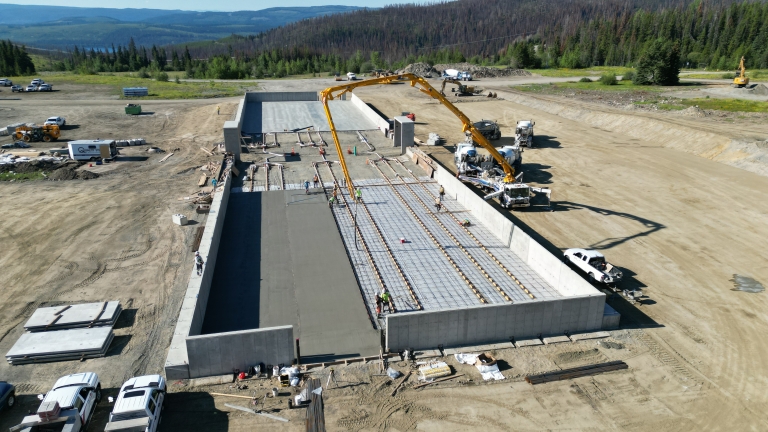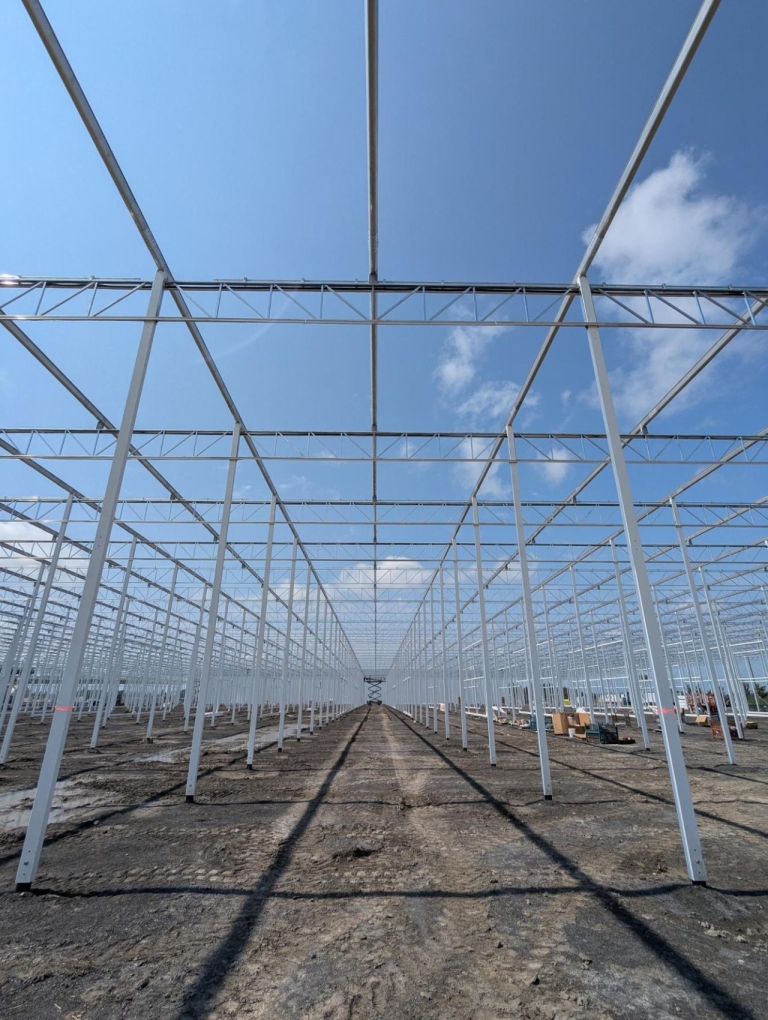Venlo greenhouses are a game-changer in the world of agriculture. They offer a controlled environment for crop growth, ensuring year-round production.
Whether you’re a nursery owner, an agricultural entrepreneur, or an educational institution, a venlo greenhouse can be a valuable asset. But buying one is a significant investment.
This guide aims to simplify the process. It provides comprehensive information on the types, features, and benefits of Professional greenhouses.
We’ll delve into the factors affecting the cost, how to assess quality, and the importance of size and scalability. We’ll also explore the role of technology and the impact of local zoning laws.
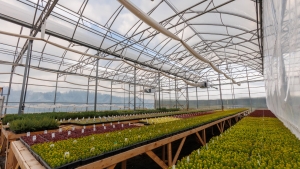
By the end of this guide, you’ll be equipped to make an informed decision. You’ll understand what to look for when searching for Professional greenhouses for sale near you.
Let’s embark on this journey to expand your horticultural activities.
Understanding Venlo Greenhouses
Professional greenhouses are large-scale garden structures. They are designed for the mass production of crops.
These structures provide a controlled environment for plant growth. They allow for year-round cultivation, regardless of external weather conditions.
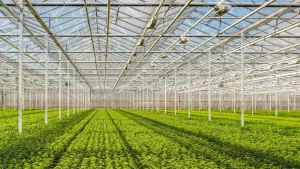
Professional greenhouses can be used for a variety of crops. These include vegetables, fruits, flowers, and even exotic plants.
Understanding the different types and benefits of Professional greenhouses is crucial. It helps you make an informed purchase decision.
Types of Venlo Greenhouses
There are several types of Professional greenhouses. The choice depends on your specific needs and budget.
Venlo greenhouses are traditional and offer high light transmission. However, they can be costly and require more maintenance.
Polycarbonate greenhouses are durable and provide good insulation. They are also more affordable than glass greenhouses.
Plastic film greenhouses are the most economical option. They are easy to install but may not last as long.
Finally, there are high-tech greenhouses. These are equipped with advanced features like automated climate control and hydroponic systems.
Benefits of Venlo Greenhouses
Professional greenhouses offer numerous benefits. They allow for year-round crop production, regardless of the weather.
They provide a controlled environment. This helps in managing pests and diseases more effectively.
High tech greenhouses also allow for efficient use of resources. They use less water and fertilizer compared to open field farming.
Moreover, they can be customized to meet specific needs. This includes the choice of materials, size, and additional features.
Lastly, energy efficient greenhouses can significantly increase crop yield. This makes them a profitable investment for any agricultural business.
Key Considerations Before Invest
Before investing a Professional greenhouse, several factors need to be considered. These factors will ensure that you make the right investment.
- Firstly, consider the type of crops you plan to grow. Different crops have different requirements for light, temperature, and humidity.
- Secondly, consider the location and climate of your area. This will influence the type of greenhouse and materials you choose.
- Thirdly, consider the size of the greenhouse. This should be based on your production goals and available space.
- Lastly, consider your budget. This includes the cost of the greenhouse, installation, and ongoing maintenance.
Location and Climate Factors
The location and climate of your area are crucial factors. They determine the type of greenhouse and materials you choose.
For instance, in colder climates, a greenhouse with good insulation is necessary. This helps to maintain a warm temperature inside the greenhouse.
In hotter climates, a greenhouse with good ventilation is important. This helps to prevent overheating and ensures adequate air circulation.
Lastly, consider the amount of sunlight your location receives. This will influence the design and orientation of your greenhouse.
Size and Scalability
The size of the greenhouse should be based on your production goals. If you plan to grow a large quantity of crops, a larger greenhouse is necessary.
However, it’s also important to consider scalability. This means choosing a greenhouse that can be easily expanded in the future.
This allows for flexibility and growth. It ensures that your greenhouse can adapt to changing needs and demands.
Lastly, consider the available space on your property. Make sure the greenhouse fits comfortably without overcrowding the area.
Cost Factors and Budgeting
Budgeting is a crucial part of investing in a traditional venlo greenhouse. It’s important to consider all the costs involved.
This includes the cost of the greenhouse itself. Different types and sizes of greenhouses come with different price tags.
Also, consider the cost of installation. This can vary depending on the complexity of the greenhouse and the site preparation required.
Lastly, don’t forget about ongoing maintenance costs. These include heating, cooling, watering systems, and potential repairs.
Features of High-Quality Venlo Greenhouses
High-quality Venlo greenhouses come with several key features. These features contribute to the efficiency and productivity of your greenhouse.
Firstly, they have a sturdy structure. This ensures that the greenhouse can withstand harsh weather conditions.
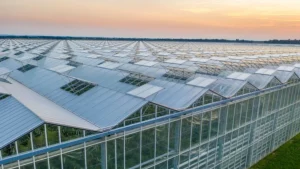
Secondly, they have a well-designed ventilation system. This ensures adequate air circulation and prevents overheating.
Thirdly, they have a good insulation system. This helps to maintain a stable temperature inside the greenhouse.
Lastly, they come with a warranty. This provides assurance of the greenhouse’s quality and durability.
Climate Control and Energy Efficiency
Climate control is a crucial feature of Professional greenhouses. It allows you to create the ideal growing conditions for your crops.
This includes temperature control. A good greenhouse will have a heating and cooling system to maintain the right temperature.
Humidity control is also important. This prevents the growth of mold and other diseases.
by Li-An Lim (https://unsplash.com/@li_anlim)
Energy efficiency is another key feature. Look for greenhouses with energy-saving features like double-glazed glass or insulated panels.
These features not only save money but also contribute to sustainability.
Durability and Material Considerations
The durability of a Professional greenhouse is largely determined by its materials. High-quality materials ensure that the greenhouse can withstand wear and tear.
For instance, the frame should be made of sturdy materials like steel or aluminum. These materials are resistant to rust and corrosion.
The covering material is also important. It should be durable and able to withstand harsh weather conditions.
Lastly, consider the quality of the doors, windows, and ventilation systems. These should be well-constructed and durable.
Finding the Right Greenhouse Manufacturer
Finding the right local greenhouse manufacturer is crucial when buying a Professional greenhouse. A good supplier will offer high-quality products and excellent customer service.

They should also provide after-sales support. This includes installation services and maintenance advice.
Lastly, consider the supplier’s reputation. Check online reviews and ask for references to ensure they are reliable and trustworthy.
Local Suppliers vs. Online Options
There are pros and cons to both local suppliers and online options. Local suppliers allow you to inspect the greenhouse before purchase.
They also provide local knowledge and advice. This can be invaluable, especially for first-time buyers.
Online options, on the other hand, offer a wider range of products. They also often have competitive prices.
However, buying online requires careful research. Make sure to read product descriptions and reviews thoroughly before making a purchase.
Installation and Maintenance
Once you’ve chosen your Professional greenhouse, the next step is installation. This process can be complex, requiring careful planning and preparation.

Maintenance is also a key consideration. Regular upkeep ensures your greenhouse remains in optimal condition.
This includes tasks like cleaning, repairing any damage, and checking the climate control systems.
Remember, a well-maintained greenhouse can provide a productive environment for your crops for many years.
Preparing Your Site for Installation
Before installing your greenhouse, prepare the site. This involves clearing any debris and leveling the ground.
You may also need to consider access to water and electricity. These are essential for irrigation and climate control systems.
Check local zoning laws too. Some areas have specific regulations about greenhouse installation.
Lastly, consider the orientation of your greenhouse. This can impact sunlight exposure and, consequently, plant growth.
Long-Term Maintenance and Upkeep
Long-term maintenance of your professional industrial greenhouse is crucial. Regular checks can help identify any issues early.
This includes checking for leaks, damage to the structure, or malfunctioning equipment.
Cleaning is also important. This helps prevent the spread of diseases and pests.
Finally, remember to regularly check and maintain your climate control systems. These are vital for maintaining the ideal growing conditions for your crops.
Conclusion: Making the Right Investment
Investing in a industrial greenhouse is a significant decision. It requires careful planning, research, and consideration.
However, with the right approach, it can be a profitable and rewarding venture. It can enhance your agricultural business, support local food systems, and contribute to a sustainable future.
